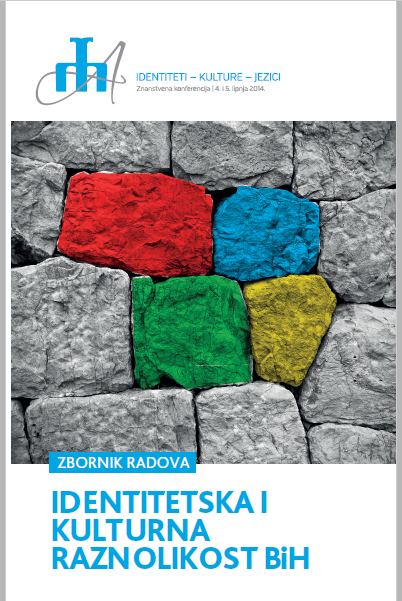U POTRAZI ZA NADILAŽENJEM „ZAMRZNUTA KONFLIKTA“ U BOSNI I HERCEGOVINI
IN SEARCH FOR SURPASSING THE „FROZEN CONFLICT“ IN BOSNIA AND HERZEGOVINA
Author(s): Mile LasićSubject(s): Politics / Political Sciences, Social Sciences, Politics and law, Politics and society, Nationalism Studies, Inter-Ethnic Relations, EU-Accession / EU-DEvelopment, Ethnic Minorities Studies
Published by: Filozofski fakultet Sveučilišta u Mostaru
Keywords: frozen conflict; primordial and perennial approach and modern approach to nation and nationalism research; the paradigm of non-violence; the model of integration
Summary/Abstract: The search for the optimal integration model in a multinational, internationally recognized but innerly unrecognized country like Bosnia and Herzegovina, a country of “unfinished war and frozen conflict”, is doomed to failure if it is supported by old paradigm values (a policy without principles, bare or juridical and political violence, the politics of nullifying identity, etc.). Thereupon, it is justified, no matter how much audacious it might seem at first glance, in the search for the optimal integration model to involve the values and possibilities of the new paradigm (the change in the mentality and opinion, culture of nonviolence and the appreciation for all identities, including the unrecognized, the respect of individual human rights, and rights of ethnic and national group subjectivities). It could be possible to create with these values an integration model of a torn Bosnian and Herzegovinian society and the revitalization of a currently dysfunctioning and utterly non-existent country. It is about the recognition of the concession form necessities of political culture, which imply the will of relevant political subjects to implement in the organization (and decision-making) process in a multinational country like Bosnia and Herzegovina all the democratic methods of managing differences and conflicts. For this purpose, the paper also questions the premodern (primordial and perennial) approach to nation phenomena and the nationalism of dominant academic and political narrative, and the quasi-modern approach that denies Bosnia and Herzegovina´s multi-nationality or reduces it to its multi-ethnicity. At last, the paper answers the questions: why are “spins” produced instead of favourable ambient for inner integration and motion towards the European Union, i.e. the European family of countries and states it signifies. Through analyses and arguments, the paper suggests the necessity for the change of the cultural and political paradigm as the basic assumption for the europeanisation of inland policies and ambient, without which there is no bright future in Bosnia and Herzegovina and for Bosnia and Herzegovina.
Journal: Identiteti - Kulture - Jezici
- Issue Year: 1/2015
- Issue No: 1
- Page Range: 173-194
- Page Count: 22
- Language: Croatian

